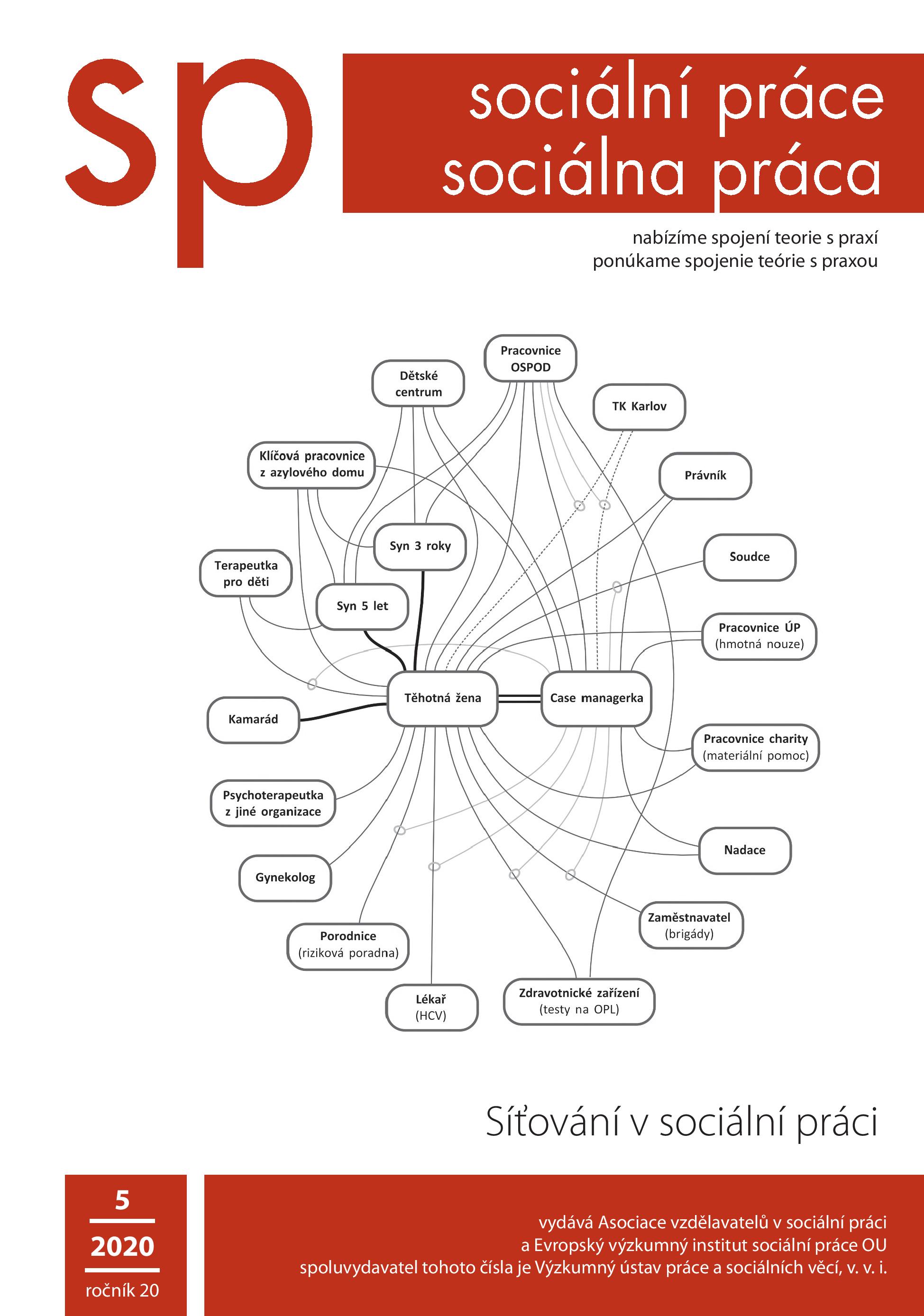
Z redakce
Nové předplatné pro rok 2021 Zemřel doc. PhDr. Pavel Hartl Advent plný dárků a překvapení YouTube kanál časopisu Sekce „Koronavirus v sociální práci“ opět spuštěna Vyšlo číslo 5/2020 „Síťování v sociální práci“
Přednášky on-line

Volná místa
Sociální pracovník (Moravská Třebová) Sociální pracovník / pracovnice (Nymburk) Vedoucí odd. kurátorů pro mládež (Praha) Kontaktní pracovník / pracovnice (Pardubice) Sociální pracovník (Hřebeč – Kladno) Odborný sociální pracovník (Liberec)
Čísla
Archiv čísel » 2020/1 - ERIS Journal - Winter 2020 - Social Work and Empowering Communities »
Development of Intercultural Work in the Czech Republic – Premises and Challenges in Establishing an Intercultural Worker Profession, Allied to Social Work that Promotes the Use of Skills that Migrants Have
Eva Dohnalová
Medailon autora:
Eva Dohnalová is a PhD student at the Department of Social Work, Faculty of Arts, at Charles University and a social worker. Her research focuses on integration policies especially at the local level, social work with immigrants, and intercultural work. As a practitioner she has been working for several migrant assisting NGO‘s including the Association for Intercultural Work. She has been involved in establishing the profession “intercultural worker” in the Czech Republic.
Abstrakt:
OBJECTIVES: The aim of the presented paper is to answer the question: How is the profession of intercultural worker and its legitimacy developing within the framework of the helping professions in the Czech Republic? THEORETICAL BASE: The article links the social work and migration studies. It draws on migrant integration models, integration policies and intercultural social work. METHODS: The article employs a case study approach, including theoretical review of intercultural work followed by an online survey. OUTCOMES: The integration of motivated migrants into helping professions, occupying the role of intercultural workers and community interpreters, is increasingly demanded by non-governmental organisations and public authorities. Yet, the professional codification of the intercultural worker is supported only in non-mandatory strategic documents within Czech integration policies and the National Qualification System. SOCIAL WORK IMPLICATIONS: In the Czech environment, there is an ambition to establish intercultural workers as a distinct profession that works closely with social workers. The discussion on the professionalization of intercultural workers deals with the possibility of integrating intercultural workers into the social services system or forming autonomous helping profession close to social work. How to ensure this on system level; is still open to question.
Klíčová slova:
intercultural worker, social work, ethno-cultural diversity, integration, interculturalism
s. 61 - 77
Podobné články
 Reflection of the Impacts of the Society Transformation in Relation to the Education at Social Work
Reflection of the Impacts of the Society Transformation in Relation to the Education at Social Work The Mainstreaming of Integration Governance and Social Work in the Local Integration of Immigrants
The Mainstreaming of Integration Governance and Social Work in the Local Integration of Immigrants Social Work Practice of Hospital Social Workers under the Structural Adjustment Program in Greece: Social Workers Protecting the Right to Health Care within the Context of Neoliberalism
Social Work Practice of Hospital Social Workers under the Structural Adjustment Program in Greece: Social Workers Protecting the Right to Health Care within the Context of Neoliberalism More Alike Than We Think? Frames and Practice of Social Work with Families in the UK and Germany
More Alike Than We Think? Frames and Practice of Social Work with Families in the UK and Germany Selected Socio-Cultural Aspects of Disability in the Arab World – Sociological Approach
Selected Socio-Cultural Aspects of Disability in the Arab World – Sociological Approach

Vyhledávání



Debata
Co si myslíte o novém koaličním návrhu na zálohované výživné?
Poslední komentáře:
Nenalezen žádný komentář.Ediční plán
6/2020 – Evaluace v sociální práci 1/2021 – ERIS Journal - Winter 2021 - Forced Migration and Minority Groups 2/2021 – Raná péče a sociální práce 3/2021 – Metody sociální práce 4/2021 – ERIS Journal - Summer 2021 - Histories of social work













